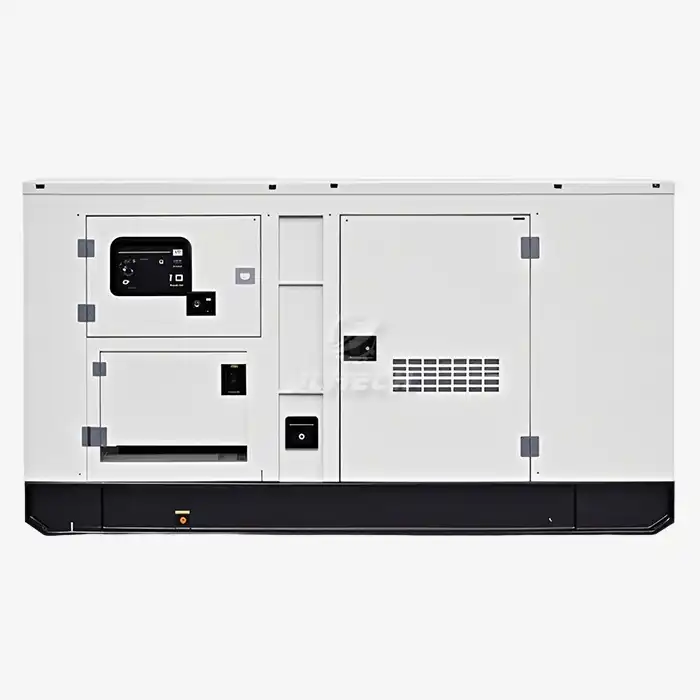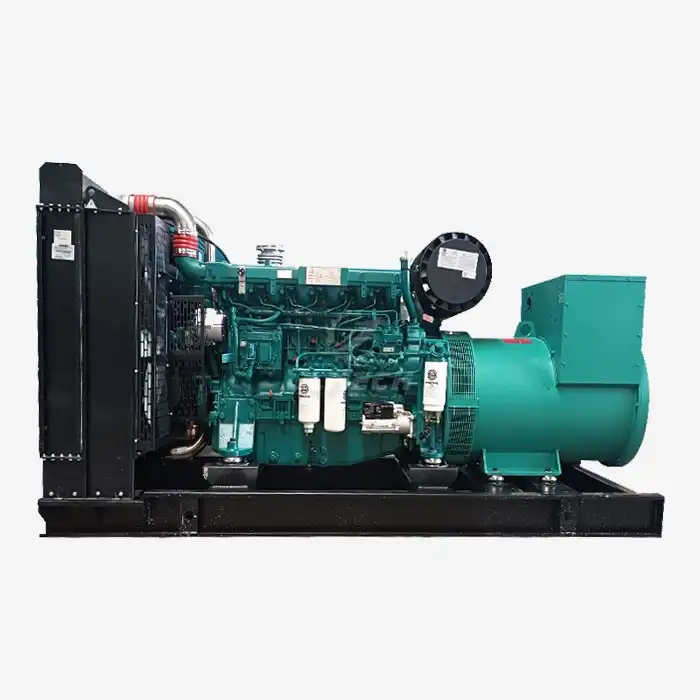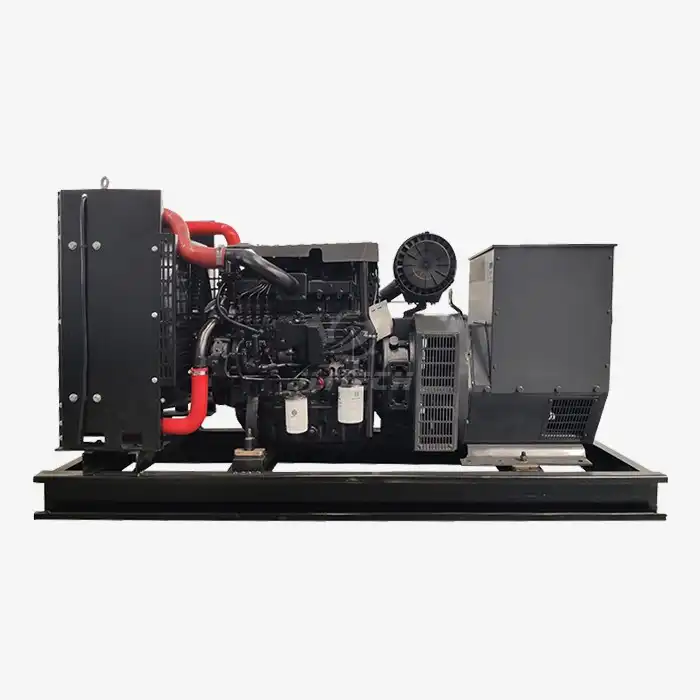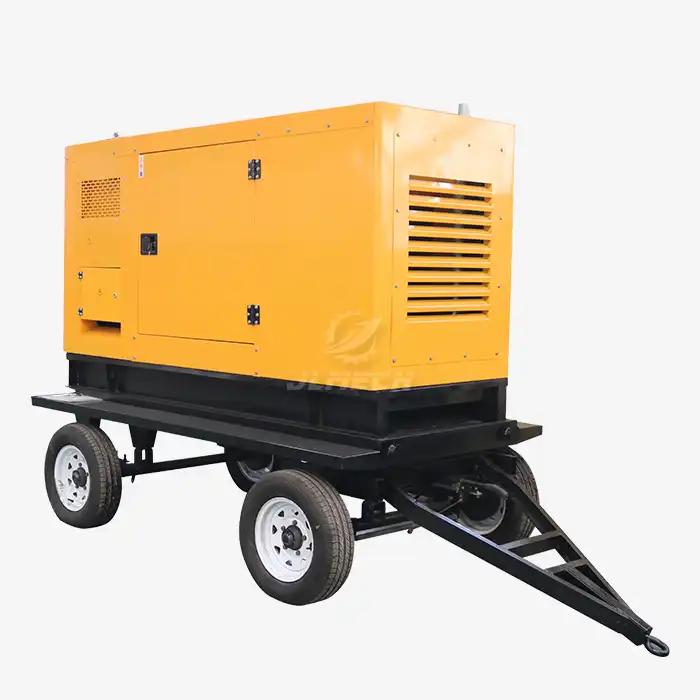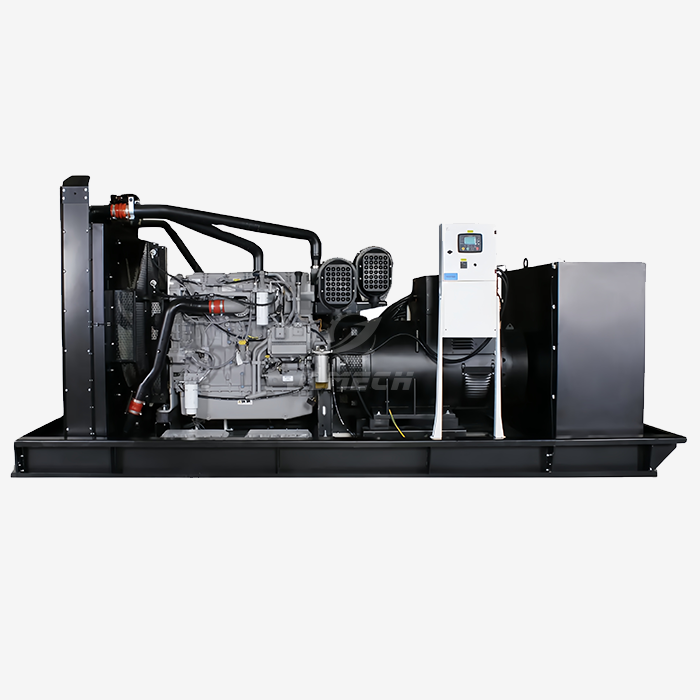How much diesel does a 1000 kVA generator use per hour?
When planning for power generation, whether for prime power, standby, or continuous operations, understanding fuel consumption is crucial for budgeting and operational planning. A 1000 kVA generator represents a significant investment in capability, and its fuel usage directly impacts operating costs. While a precise figure requires specific generator specifications, a typical 1000 kVA diesel generator consumes between 25 and 30 gallons of diesel per hour when operating at full load. However, this is a benchmark, and the actual diesel generator gallons per hour can vary significantly based on load, efficiency, and operating conditions. This guide will provide a comprehensive breakdown of the factors influencing fuel use and how to calculate your specific consumption.
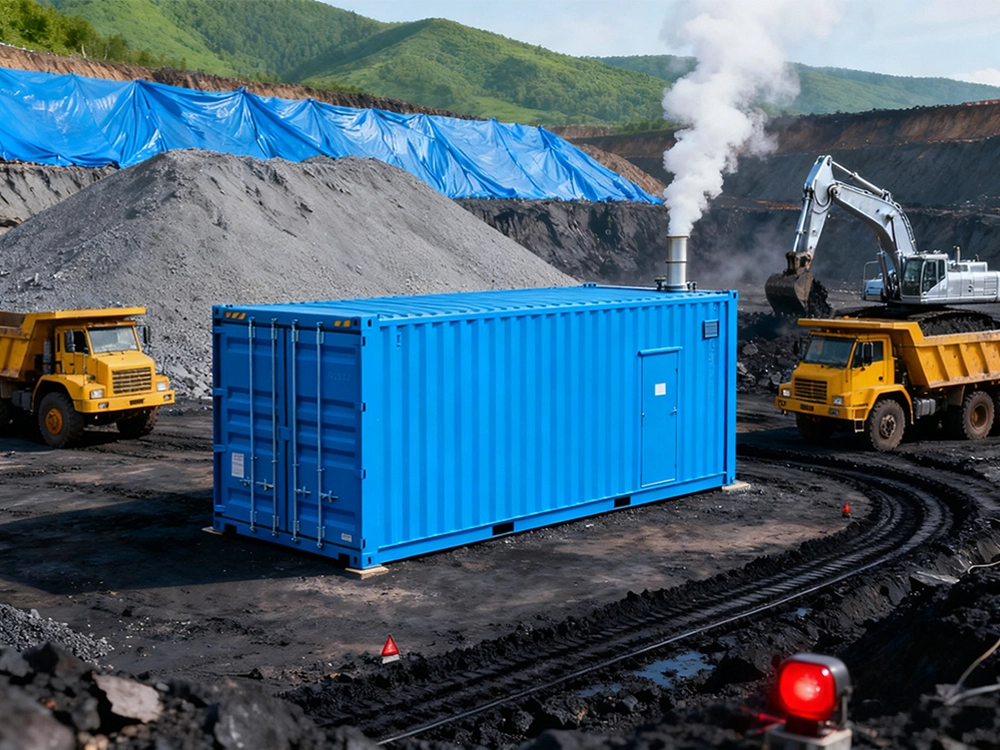
Understanding the Basics of Fuel Consumption
Fuel consumption for diesel generators is primarily governed by the relationship between the generator's size (kVA), its load factor, and its specific fuel consumption (SFC) rate. The kVA rating indicates the generator's apparent power capacity. The real power in kilowatts (kW) is calculated by multiplying kVA by the power factor (typically 0.8 for most industrial applications). Therefore, a 1000 kVA generator is typically capable of delivering 800 kW of real power. Fuel consumption is more directly tied to this kW output than the kVA rating. Manufacturers provide a Specific Fuel Consumption rate, usually in grams per kilowatt-hour (g/kWh). A lower SFC indicates a more fuel-efficient engine. The actual diesel generator gallons per hour is a function of this SFC and the applied load.
Key Factors Influencing Fuel Burn Rate
The fuel consumption of your 1000 kVA generator is not a fixed number. Several dynamic factors will determine the actual burn rate, making it essential to understand what drives efficiency and cost.
Load Factor: This is the most significant variable. A generator running at 100% load will consume significantly more fuel than one running at 50% load. However, it often operates most efficiently at 70-80% of its full load capacity.
Engine Efficiency and Technology: Modern, electronically controlled engines with high-pressure common rail fuel systems are far more efficient than older mechanical engines. The brand, model, and technology level of the engine directly impact the SFC.
Operating Conditions: Ambient temperature and altitude affect combustion efficiency. High altitudes and extreme temperatures can increase fuel consumption.
Generator Maintenance: A poorly maintained generator with clogged air filters, dirty fuel injectors, or incorrect valve timing will consume more fuel to produce the same amount of power.
Fuel Quality: Using clean, high-quality diesel ensures optimal combustion, while contaminated or poor-grade fuel can lead to incomplete burning and higher consumption.
Calculating Your Specific Fuel Needs
To move beyond general estimates, you can calculate a more precise fuel consumption for your operation. This involves a few key steps and understanding the difference between liters and gallons for a diesel generator gallons per hour calculation.
Find the Specific Fuel Consumption (SFC): Check the generator's technical data sheet. For a modern 1000 kVA unit, the SFC is typically between 200 and 230 g/kWh. We'll use 210 g/kWh for this example.
Determine Your Average Load: Estimate the average load you expect to place on the generator. For this example, let's assume a 75% load.
Real Power (kW) = 1000 kVA × 0.8 (power factor) = 800 kW
Load at 75% = 800 kW × 0.75 = 600 kW
Calculate Hourly Fuel Use in Liters:
Fuel (g/h) = SFC × Load = 210 g/kWh × 600 kW = 126,000 g/h
Convert to kg/h: 126,000 g/h ÷ 1000 = 126 kg/h
Convert to L/h (diesel density ~0.835 kg/L): 126 kg/h ÷ 0.835 kg/L ≈ 151 Liters per hour
Convert to Gallons per Hour:
US Gallons: 151 L/h ÷ 3.785 L/gal ≈ 40 US Gallons per hour
Imperial Gallons: 151 L/h ÷ 4.546 L/gal ≈ 33 Imperial Gallons per hour
This detailed calculation shows why a simple "25-30 gallon" estimate can be misleading and underscores the importance of a tailored assessment for accurate diesel generator gallons per hour forecasting.
Comparing Fuel Efficiency Across Models
Not all 1000 kVA generators are created equal. When evaluating different models, pay close attention to the manufacturer's published fuel consumption data.
Review Data Sheets: Compare the SFC (g/kWh) at various load points (25%, 50%, 75%, 100%). A generator that maintains a low SFC across a wide load range is more versatile and efficient.
Consider Technology: Generators with advanced electronic control systems and smart governors can optimize fuel injection timing and quantity in real-time, leading to better overall fuel economy compared to older models.
Total Cost of Ownership: A slightly more expensive generator with superior fuel efficiency will often have a lower total cost of ownership over its operational lifespan due to significant fuel savings. Focusing solely on the initial purchase price can be a costly mistake.
Strategies for Reducing Fuel Consumption
Proactive management can significantly lower your fuel costs and improve your operation's sustainability.
Right-Sizing Your Load: Avoid consistently running the generator at a very low load (below 30%) as this is highly inefficient and can cause "wet stacking." Ideally, operate between 50-80% load.
Implement a Rigorous Maintenance Schedule: Regular servicing, including timely replacement of air filters, fuel filters, and oil, along with injector testing and calibration, ensures the engine runs at peak efficiency.
Use Load Management Systems: For installations with multiple generators, a load-sharing controller can distribute the load optimally among units, keeping each one in its most efficient operating range.
Invest in a Modern, Efficient Unit: If you are operating an older generator, upgrading to a newer model can result in dramatic fuel savings, sometimes as high as 15-20%, which can quickly justify the capital investment.
Operational Cost Implications
Understanding the diesel generator gallons per hour is the first step to calculating your total operational expenditure.
Fuel Cost Calculation: Multiply your hourly consumption (in gallons) by the local cost of diesel. For example, 40 US gallons/hour at $4.00 per gallon equals $160 per hour in fuel cost alone.
Budgeting for Projects: For construction or temporary power, accurate fuel consumption estimates are essential for project budgeting and bidding.
Standby Generator Cost Analysis: For emergency backup systems, calculating the potential fuel cost of an extended outage helps in risk assessment and financial planning.
Conclusion
The fuel consumption of a 1000 kVA generator is a critical variable that directly influences your bottom line. While a typical range is 25-30 US gallons per hour at full load, the actual diesel generator gallons per hour is highly dependent on the applied load, engine technology, and operating conditions. By understanding how to calculate your specific needs, comparing generator efficiency, and implementing fuel-saving strategies, you can make informed decisions that optimize performance and minimize operating costs. Proper planning and maintenance are the keys to achieving the most cost-effective and reliable power generation.
Our engineering team can provide you with precise fuel consumption data for our generator models and help you select the most efficient unit for your application. For a detailed consultation and a custom fuel consumption estimate, please contact us at skala@whjlmech.com.
References
Generator Manufacturers Association. (2021). Guidelines for Rating and Application of Generator Sets. GMA Technical Publication TP-101.
Caterpillar Inc. (2020). Database: Diesel Engine Performance. CIDB Publication.
Cummins Inc. (2019). Power Calculation and Fuel Consumption Guide. Technical Bulletin T-800.
National Fire Protection Association. (2020). Standard for Emergency and Standby Power Systems (NFPA 110).



